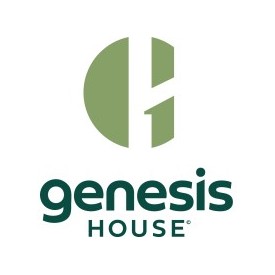Addiction doesn’t just affect the person struggling with substance abuse. It can also impact those closest to them, such as romantic partners, family, and friends.
A growing amount of research is showing that significant other involvement in addiction treatment leads to better success rates. Couples therapy for addiction could increase emotional support in rehab and after finishing a treatment program. It allows both the person in rehab and their partner to learn and grow throughout the process.
For example, a meta-analysis in 2021 that studied 4,901 patient records found that significant other involved treatment had a substantial impact on reducing substance use and substance-related problems. Those results even sustained for 12-18 months post-treatment, showing it can help maintain ongoing sobriety.
One of the couples therapy options that may be used for addiction treatment is called the Gottman Method. What is the Gottman Method, and its role in fixing relationships after addiction? Read on as we discuss all the details and how we can provide support at Genesis House.
The Basics of the Gottman Method
Gottman Method therapy was developed by Drs. John and Julie Gottman in the 1970s and first put into practice in the 1980s. It’s based on decades of research from several clinical trials on topics like love, divorce, and couples’ communication.
The overarching goal of the Gottman Method in couples therapy is to improve communication, intimacy, and happiness in relationships. It’s based on a concept called the Sound Relationship House that details key elements of effective relationships.
Dr. John and Julie Gottman’s research found that taking steps to counteract negativity in relationships was key within this framework to help couples grow together emotionally in a positive way.
How the Gottman Method Works
The framework of the Sound Relationship House in the Gottman Method is built on 7 core principles, which are:
- Love maps: Building love maps helps understand each other’s past, hopes, worries, preferences, and dreams. These love maps are meant to go beyond surface-level knowledge of your partner and gain a better understanding of their inner world and struggles.
- Fondness and admiration: Gottman Method therapy will work on encouraging partners to intentionally express their love and appreciation for one another, which builds a greater sense of connection in the relationship.
- Turning towards each other: Both partners work to turn towards each other and support one another in moments of need. This creates a stronger support system for both individuals.
- Partner influence: This involves building respect for each other’s perspectives and learning how to share decision-making. Allowing partner influence can help both people in the relationship feel like they have an equal say and impact.
- Problem resolution: The Gottman Method focuses on more than just resolving a current problem. Therapy sessions will also dive into addressing underlying emotions that are contributing to ongoing conflict to achieve longer-term solutions.
- Overcoming gridlock: When partners have ongoing conflict that’s tough to resolve, the Gottman approach focuses on “declawing” the issue. Partners work on gradually reducing emotional pain surrounding the issue to allow for open dialogue that leads to effective resolution.
- Creating shared meaning: Therapy will work on reinforcing shared values, beliefs, and goals to help the couple work together and celebrate each other’s achievements.
Why Relationships Struggle During Addiction
Many relationships struggle during addiction because of the secrecy and lack of trust involved. It’s common for those struggling with substance abuse to try to hide it from those they care about. However, that can also lead to losing trust, intimacy, and a sense of safety between partners when the truth comes out.
Co-dependency is also common in relationships where one partner struggles with addiction. One person can feel overly preoccupied with their partner’s addiction and try anything they can to manage dysfunctional behavior, while the other person becomes preoccupied with drug use.
Over time, co-dependency hurts the partner trying to help and leads to damage in the relationship on both sides. It’s natural to start feeling helpless, angry, or traumatized by the situation, and both partners will require recovery from what they experienced.
Each of these struggles can lead to what the Gottman Method refers to as the Four Horsemen in a relationship: criticism, contempt, defensiveness, and stonewalling. Therefore, fixing relationships after addiction requires a conscious effort, and Gottman Method addiction recovery therapy can be an effective method to approach it.
Gottman Method Therapy in Addiction Recovery
Relationship counseling for substance abuse using the Gottman Method can be used alongside individual therapy and rehab programs. It encourages learning, accountability, and emotional healing for both partners.
The principles of the Sound Relationship House would be applied during treatment, helping:
- Understand how the addiction has affected each person individually, and the emotional trauma that occurred from the situation.
- Work on the underlying emotional issues contributing to the ongoing conflict to come to effective resolutions.
- Learn how partners can turn toward one another during times of need to lend support and work together effectively.
- Build goals and dreams that the couple wants to work toward together while moving forward.
Each of these elements can contribute to a better support system for both individuals during addiction recovery. Neither partner has to feel like they’re going through it alone while facing struggles and learning about the effects of substance abuse.
Who Is It For?
Gottman Method addiction therapy is best for:
- Couples where one or both partners are in recovery. Even if both partners struggle with addiction, the Gottman Method can help them learn to work together as they move forward.
- Clients transitioning out of residential treatment. Family support is crucial as someone finishes a residential program and begins transitioning back to regular daily life. Gottman Method couples therapy can help partners work together during this transition phase to achieve success.
- Relationships where trust and stability need to be rebuilt. Any relationship that has trust and stability affected by substance abuse can benefit from working through the steps of the Gottman Method to improve communication, intimacy, and support.
Genesis House’s Approach to Couples and Family Healing
Genesis House is a drug and alcohol addiction treatment center. We provide evidence-based treatment programs that can be tailored to your needs, including integrating couples or family therapy.
Our therapists are trained in a wide range of therapeutic methods, including evidence-based options like the Gottman Method.
If what you read about it in this article aligns with your needs, we can work with you to use it in couples therapy during your treatment plan. Plus, we can review other options so you feel confident you’re choosing the right type of therapy for you and your partner that leads to lasting healing and sobriety.
Contact Genesis House to Learn More
You can learn more about our drug and alcohol addiction treatment options at Genesis House today. Contact us to set up a consultation or ask any other questions you have. We’re here to support you and your loved ones as you rebuild.
References
- Ariss, Talia, and Catharine E. Fairbairn. “The Effect of Significant Other Involvement in Treatment for Substance Use Disorders: A Meta-Analysis.” Journal of Consulting and Clinical Psychology, vol. 88, no. 6, June 2021, pp. 526–540, doi:10.1037/ccp0000495. https://pmc.ncbi.nlm.nih.gov/articles/PMC7228856/
- The Gottman Institute. “Overview – Research | the Gottman Institute.” The Gottman Institute, 2015, https://www.gottman.com/about/research/
- “Co-Dependency | Mental Health America.” Mental Health America, 3 Dec. 2024, https://mhanational.org/resources/co-dependency/
- Lisitsa, Ellie. “The Four Horsemen: Criticism, Contempt, Defensiveness, and Stonewalling.” The Gottman Institute, 15 Oct. 2024, https://www.gottman.com/blog/the-four-horsemen-recognizing-criticism-contempt-defensiveness-and-stonewalling/






